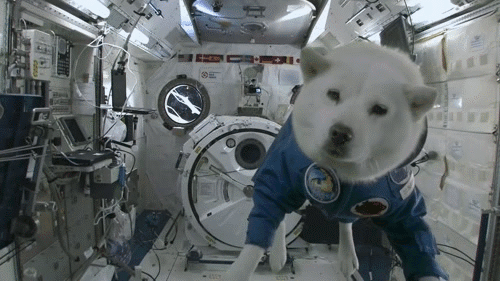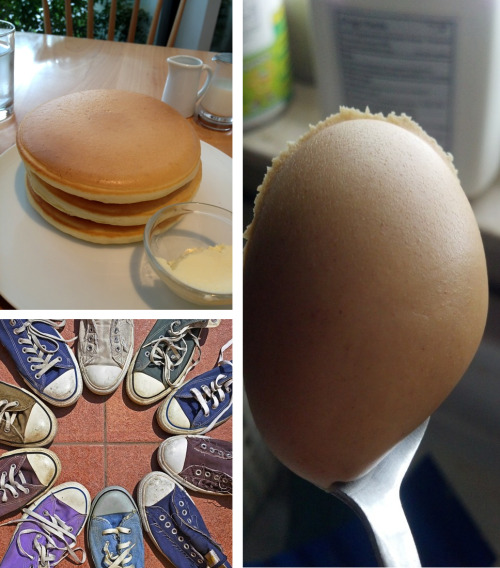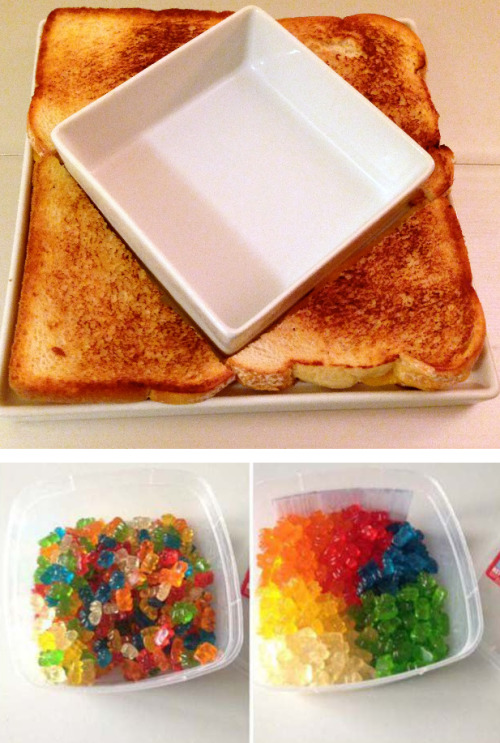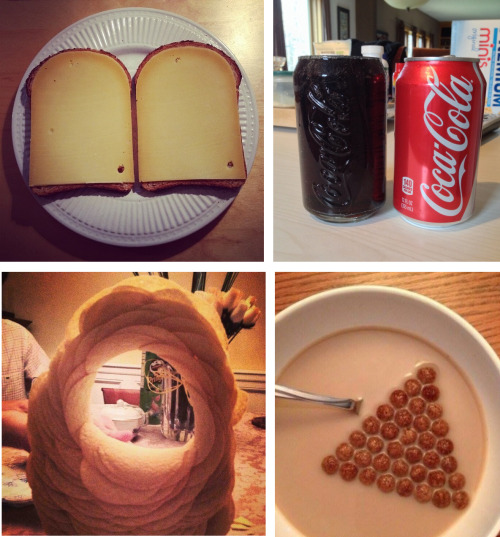This Week In “TBDMSCl Crystals”

This week in “TBDMSCl crystals”
More Posts from Secretagentpeptidebond and Others
Stupid Lab Mistakes: a Constant Across All Levels of Experience
So today was day one of a tyrosinase lab. We had to centrifuge our organic matter sample (homogenized mushroom gills) to separate the soluble proteins from the rest of the tissue, and we counterbalanced our sample with an identical centrifuge tube of equal weight filled with water. We did all of this under the supervision of a TA and our professor.
My lab partners and I have used centrifuges many times before, but what we (and the instructors) failed to notice was that these particular tubes required an adapter for this particular centrifuge. We were spinning it up to about 7000 rcf when we heard a muffled “bang,” then the centrifuge slowed to a stop. When we opened it up, we discovered that the water tube had EXPLODED, shattering into a hundred little plastic pieces. the tube containing our organic sample slurry was thankfully intact, but it was badly warped and cracked. We spent the next 20 minutes or so carefully wiping water off every nook and cranny of the centrifuge interior, thanking our lucky stars that it wasn’t mushroom gloop.
I keep thinking that gaining more practical lab experience will save me from this kind of thing, but if the three different generations of chemists present couldn’t keep it from happening then there is no hope. These incidents are the things that add unexpected excitement to my life, though, so I suppose it’s not all bad.



A little friendly fire for @yo-yo-yoshiko. Don’t expect any more of these, I want points dammit!
[ Find me on Art Fight! ]
I have a lot of friends who are premeds, so they definitely aren't all bad. That said, some of them are pretty hard to be in class with. Especially the ones who are SUPER competitive - they dominate office hours and take up the instructor's time with questions that are sometimes only relevant to themselves. One of my TAs was complaining about one of the that argued with him for 30 minutes over half a point. There's a point where it goes past acceptable academic competition.
At the risk of being incredibly whiny, what exactly is everyone's beef with med students? D: I just finished my biology degree with pre-med and I guess I was just surrounded by med students because I do not understand
It’s just exhausting to be in a class you enjoy and are taking because you want to do science and be surrounded by students who are constantly complaining about how much they hate it, and don’t need it, and are only taking it because it’s going to be on the MCAT. Certainly not all pre-meds are like that, but even the 10% who constantly ask questions about if they’re going to get an A and look down at the mere science students kind of ruin it when you have to deal with them in every class.
I will say, a large part of the problem isn’t even pre-med students themselves, it’s the fact that biology departments have to bear the burden of the majority of their students being pre-professional in some capacity, who have completely different needs than pre-doctoral students who want to be biologists. Bio programs end up teaching to the MCAT almost out of necessity, which does a disservice to the students who want to be scientists.
I know that at my university, I considered switching to bio from chem, but ended up staying in the science and engineering college because the bio college was so focused on pre-professional students that they did a really poor job preparing you to be an actual scientist. Just based on the classes I took for my biochem minor, it was really obvious. I suspect that this is the case at a lot of schools, which sort of compounds the issues and makes pre-doctoral students frustrated with pre-meds, even though it’s not their fault directly.

We were just discussing in class today in the context of ubiquinated H2B. Neat!

Ubiquitin is a regulatory protein found in most tissues of many walled-celled organisms. Originally known as ubiquitous immunopoietic polypeptide, ubiquitin was discovered in 1975 and its mechanism identified by a team including Aaron Ciechanover, Avram Hershko, and Irwin Rose of the Fox Chase Cancer Center, for which they were awarded the Nobel Prize in Medicine in 2004. Ubiquitins act as traffic control agents within the cell, directing other proteins to various compartments within the cell including tagging proteins for destruction.
The word ubiquitin was formed in 1975 from the English adjective ubiquitous which dates only from 1837. Ubiquitous derives from the noun ubiquitary which dates from 1580s from the Latin preposition ubi meaning where and que meaning any, also, ever. Ubiquitary (meaning everywhere) originally referred to the Luthern doctrine that Christ is omnipresent.
Representation of ubiquitin protein, highlighting the secondary structure. α-helices are coloured in blue and β-strands in green. The sidechains of the 7 lysine residues are indicated by orange sticks. The two best-characterised attachment points for further ubiquitin molecules in polyubiquitin chain formation (lysines 48 & 63) are labelled.
Image of ubiquitin protein courtesy rogerdodd under a Creative Commons 3.0 license, used with permission.




-
 18crown6ether liked this · 7 years ago
18crown6ether liked this · 7 years ago -
 chrysocollaandcocacola liked this · 8 years ago
chrysocollaandcocacola liked this · 8 years ago -
 she-sang-love liked this · 8 years ago
she-sang-love liked this · 8 years ago -
 abaven liked this · 8 years ago
abaven liked this · 8 years ago -
 plantoniic liked this · 9 years ago
plantoniic liked this · 9 years ago -
 philswip-blog liked this · 9 years ago
philswip-blog liked this · 9 years ago -
 mysticalmusicalchaos liked this · 9 years ago
mysticalmusicalchaos liked this · 9 years ago -
 timid-owl liked this · 9 years ago
timid-owl liked this · 9 years ago -
 ersatzmoniker888 reblogged this · 9 years ago
ersatzmoniker888 reblogged this · 9 years ago -
 ersatzmoniker888 liked this · 9 years ago
ersatzmoniker888 liked this · 9 years ago -
 heartmarierose liked this · 9 years ago
heartmarierose liked this · 9 years ago -
 tonnobarbuto liked this · 9 years ago
tonnobarbuto liked this · 9 years ago -
 secretagentpeptidebond reblogged this · 9 years ago
secretagentpeptidebond reblogged this · 9 years ago -
 rinaosmani-blog1 liked this · 9 years ago
rinaosmani-blog1 liked this · 9 years ago -
 theleastinterestingmanwithablog liked this · 9 years ago
theleastinterestingmanwithablog liked this · 9 years ago -
 caroline-lazaro-blog liked this · 9 years ago
caroline-lazaro-blog liked this · 9 years ago -
 xxshadow-ravenxx-blog liked this · 9 years ago
xxshadow-ravenxx-blog liked this · 9 years ago -
 cio-sama reblogged this · 9 years ago
cio-sama reblogged this · 9 years ago -
 roxxelena liked this · 9 years ago
roxxelena liked this · 9 years ago -
 diacylglycerol-blog liked this · 9 years ago
diacylglycerol-blog liked this · 9 years ago -
 invaderxan liked this · 9 years ago
invaderxan liked this · 9 years ago -
 atrailofstardust reblogged this · 9 years ago
atrailofstardust reblogged this · 9 years ago -
 scienceismyaesthetic reblogged this · 9 years ago
scienceismyaesthetic reblogged this · 9 years ago -
 oursandra1 liked this · 9 years ago
oursandra1 liked this · 9 years ago -
 er435 reblogged this · 9 years ago
er435 reblogged this · 9 years ago -
 er435 liked this · 9 years ago
er435 liked this · 9 years ago -
 tchaibrosky liked this · 9 years ago
tchaibrosky liked this · 9 years ago -
 thchemist reblogged this · 9 years ago
thchemist reblogged this · 9 years ago -
 sluttywesker liked this · 9 years ago
sluttywesker liked this · 9 years ago -
 its-pmg reblogged this · 9 years ago
its-pmg reblogged this · 9 years ago -
 saccidental liked this · 9 years ago
saccidental liked this · 9 years ago -
 rainrain500-blog reblogged this · 9 years ago
rainrain500-blog reblogged this · 9 years ago -
 hopesab1tch liked this · 9 years ago
hopesab1tch liked this · 9 years ago -
 supermagneticmorry reblogged this · 9 years ago
supermagneticmorry reblogged this · 9 years ago -
 onion-groovy liked this · 9 years ago
onion-groovy liked this · 9 years ago -
 thelabdude reblogged this · 9 years ago
thelabdude reblogged this · 9 years ago -
 quantum-friend-theory liked this · 9 years ago
quantum-friend-theory liked this · 9 years ago -
 sciencetylia liked this · 9 years ago
sciencetylia liked this · 9 years ago -
 young-afro liked this · 9 years ago
young-afro liked this · 9 years ago -
 alexandurr liked this · 9 years ago
alexandurr liked this · 9 years ago -
 organicmechanic liked this · 9 years ago
organicmechanic liked this · 9 years ago -
 dizzlefoshizzle721 liked this · 9 years ago
dizzlefoshizzle721 liked this · 9 years ago













